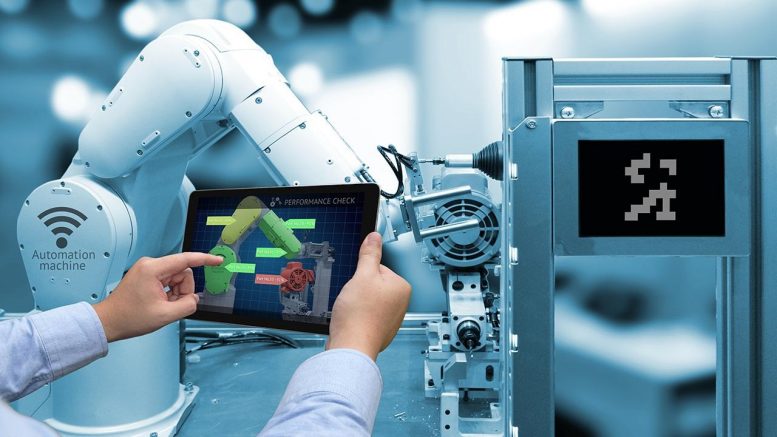We’re seeing clear evidence that the Palmetto State’s economy will sustain stable growth as we head into the early part of this year – and well beyond.
Even with challenges of disruptions from technological advancements such as the Industrial Internet of Things (IIoT), manufacturing organizations in South Carolina are in for an active year.
When it comes to digital disruption, all signs point toward the region’s organizations using real-time data to make decisions quickly, to mine for actionable intelligence, and to create a competitive advantage.
This has never been truer than now as organizations enter into the age of the Industrial Internet of Things.
The Industrial Internet of Things
What do we mean when we refer to IIoT?
The concept is related to the Internet of Things (IoT) which is more familiar on the consumer level.
Connected devices like Fitbits monitor the number of steps we take, the quality of our sleep, the number of calories burned by everyday activities. Cell phones monitor postage deliveries and show who’s ringing the doorbell. Robotic vacuum cleaners traverse the living room carpet when needed and room temperatures and lighting react to human activity without input from anyone other than a machine.
With IIoT, the impact in the industrial and manufacturing sector will be far more disruptive and drive innovations that weren’t possible until now. Smart manufacturing, on demand production and delivery, intelligent sensors and automation all play an important role Cloud computing and reduced costs for sensors are enabling the growth of the IIoT phenomenon.
Like the tight data connectivity related to the Internet of Things, the Industrial Internet of Things or IioT puts the focus on the optimization of operational efficiency and automation, with IT systems as a key driver.
The Importance of Data Availability
IIoT expands data availability, improves accuracy and brings a far great amount of transparency into the enterprise.
For South Carolina’s manufacturing sector, ready access to business intelligence will have a significant impact on forecasting, inventory control and customer service. Linking manufacturing devices to input production data is one area where manufacturers could immense rewards: product counts, temperature variables, quality output tracking and alerts.
The potential benefits – in real time – are leaps ahead of where most manufacturers operate today.
Imagine a scenario where the end product is exchanging data with the internet and the manufacturer can monitor for usage, wear and tear and anticipate needed maintenance without an equipment failure or disruption in business continuity.
Forecasting – always an inexact, time consuming and imperfect process – could be eliminated by communicating point-of-sale inventory information directly to the manufacturer. This exchange of information would allow the manufacturer to transition from the make-to-stock production model to the more profitable make-to-order model. The manufacturer could focus on only producing the in-demand products, resulting in less need for slow moving inventory.
Business intelligence which once relied on historical data of past transactions to support decision making now becomes a tool to reveal the present reality.
Security Implications
Cybersecurity is a legitimate concern when machines and products are connected and exchange data.
A strict regimen of vulnerability scanning, and data security best practices are a critical requirement.
It’s critical to ensure that IIoT data is shared with senior managers and limited to individuals closest to the machine sensors on the shop floor.
Best-Case Scenarios
The best-case scenario is when enterprise software operationalizes IIoT data without the necessity of human intervention. It could issue work orders automatically when it senses the need. It could schedule the appropriate technicians and adjust production schedules based on fault reports and overall equipment calculations.
The industrial Internet of Things delivers efficiency savings, cost savings and a competitive differentiator over slow adopting laggard manufacturers.
Those enterprises here in South Carolina, including the automotive and aerospace supply chain, can’t afford to stay still when it comes to driving business processes through IIoT.
About the Author: Jeff Carr is Founder and CEO of Ultra Consultants, an independent research and enterprise selection consultants firm serving the manufacturing and distribution industries. He is a leading independent voice in enterprise system technology. Jeff’s organizations have helped over 1,200 manufacturing companies transform their business operations. Visit Ultra Consultants to learn more about Jeff Carr and his team. www.ultraconsultants.com




Be the first to comment on "Disruption Ahead: How Will the Industrial Internet of Things Impact Your Manufacturing Enterprise?"